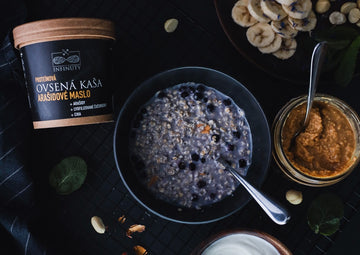We've written about nuts several times on our blog. We've already looked at why you should eat nuts after 40 and their main health benefits .
Today we're going to introduce you to 6 myths about nuts that are circulating on the internet. Some of these myths say that nuts make you gain weight, and others that almonds are not vegan.
6 myths about nuts you haven't heard before.
Nuts make you gain weight.
The first of these myths is the theory that nuts make you gain weight. Yes, nuts are high in fat, but they are not fat in the same way as fats.
Nuts contain mainly unsaturated fatty acids, which reduce the risk of cardiovascular disease and even lower cholesterol.
In addition, nuts contain high amounts of protein and fiber, which makes us feel fuller for longer. After consuming them, blood sugar levels are stable, which allows for longer time gaps between meals.
Recently, several studies have also emerged confirming that nuts help with weight loss.
Soaked nuts are healthier.
Another myth that often appears is that nuts need to be soaked before eating. It is said that soaked nuts are so-called activated and are healthier.
However, the truth is that soaked and unsoaked nuts contain exactly the same amount of nutrients, minerals, and vitamins.
The only difference is that soaked nuts are stripped of phytic acid, which is known as an “antinutrient” because it interferes with the absorption of certain minerals, such as calcium, iron, and zinc.
Therefore, if you suffer from a deficiency of these minerals, it will be better for you to soak the nuts.
If you eat a balanced diet and get enough nutrients, you don't need to worry about phytic acid and can still eat nuts that are not soaked.
Some nuts are healthier than others.
The question of which nuts are the healthiest is often asked online. However, the truth is that all nuts are healthy.
They contain high amounts of healthy fats, protein, fiber, minerals, and vitamins.
The only difference between nuts is that each one is special in something.
For example, almonds contain the most vitamin E, pecans contain the most antioxidants, and walnuts have the highest omega-3 fatty acid content. Brazil nuts contain the most selenium, cashews contain the most zinc, and pine nuts contain the most vitamin A.
Therefore, it would be best to say that even though some nuts contain more vitamins or minerals than others, that doesn't mean one is healthier than the other. They are simply different.
If you have a peanut allergy, you can't eat other nuts.
With this myth, it's important to note right from the start that peanuts are not nuts, but legumes. So even if you have a peanut allergy, it doesn't mean you can't eat other nuts.
Some people with peanut allergies also tend to have allergies to other foods. However, it is rare for them to have an allergy to tree nuts.
Nuts are not suitable for children.
Another myth that is very popular on various forums is that nuts are not suitable for children.
Nuts are among the 8 foods most commonly allergic to in children. Based on these claims, it was recommended to give nuts to children at a later age.
New studies have shown that the opposite is true: the earlier nuts are introduced to young children, the lower the risk of developing an allergy to them later in life.
According to the American Academy of Pediatrics, the best time to introduce nuts to babies is between 6 and 8 months of age. However, be careful . Since most babies at this age don't have solid teeth yet, it's best to introduce very small amounts of 100% nut butters.
Almonds are not vegan.
We saved the best for last.
Recently, a theory emerged that almonds are not vegan, and it's because of the bees.
Bees are very important in almond farming, as they are responsible for pollinating almond flowers. However, according to some fanatical vegans, it is this "bee contact" that makes almonds non-vegan.
If you think this is a joke, we have to disappoint you. If English is not a problem for you, read more on the page that deals with this strange theory.





